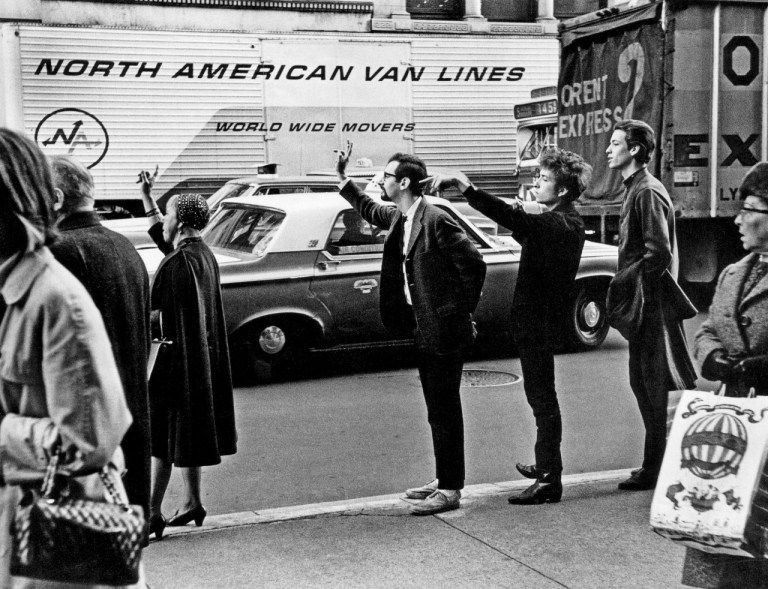Whenever I am about the get into an Uber I find myself in a tense state of indecision. Where to sit? The front seat would require me to make conversation or else sit in awkward eye-contact-averting silence. But climbing into the backseat creates an uncomfortable air of superiority as if I had no interest in the driver and just saw him as a mode of transportation. But I still usually end up self-consciously settling in the back because after all, I am just one many passengers and maybe the driver appreciates the lack of pressure to make conversation. But during a recent Uber ride I came to the realization that I might have been forgoing more than just polite pleasantries by disregarding the potential of this interaction.
It was the day before I left school for winter break. I had been hearing rumors about a severe storm that was supposed to hit California beginning on Wednesday night and lasting through Thursday but to be honest I was pretty skeptical, mostly because I didn’t trust people accustomed to the ever-pleasant California climate to be the most reliable authorities on extreme weather. But when I woke up at seven the next morning to flashing lights and unnerving periodic beeping noises I realized that California might be able to throw a climate curve ball after all. I began to worry about my imminent flight and a glance outside only heightened my apprehension. Everything in sight seemed to be attempting to flee in the same direction. I stood by the door waiting for my Super Shuttle but when I started to get automated text messages repeatedly informing me that it was delayed I began to panic. After half an hour I decided the risk of missing my flight was too high and so I resentfully pulled up my Uber app and requested a car. When it came five minutes later I dragged my bag to the car and mumbled hello to the driver who seemed too cheery for this hour and the miserable weather. I didn’t even think twice before clamoring into the back. I was annoyed and worried and I was trying not to envision my mom’s reaction when she found out that I missed my flight.
“This weather is crazy.” the driver remarked.
“Ya it’s pretty wild,” I curtly responded.
“I have never seen anything like it here.”
Realizing that he wanted a conversation and that I would be rude not to make even the smallest effort I said, “Ya, I’m from New Jersey and I’ve seen some pretty bad weather there but I didn’t expect this from California.”
“I know.” He replied, “I can usually rely on California weather being much more pleasant than where I’m from, especially this time of year. It’s pretty cold there right now and most people don’t have any heating.”
Now I was a little intrigued.
“Where are you from?” I asked.
“The Himalayas,” He said. “I’m from Bhutan.”
“You’re from Bhutan?!” A minute ago I was feigning interest and now I was almost trying to conceal my excitement. I had written a paper about Bhutan in middle school and I remembered something about them measuring Gross National Happiness as an alternative to GDP.
“Aren’t you guys the happiest country in the world or something?” I asked.
“Yup,” He chuckled.
He then explained to me that due to the recentness of globalization, Bhutan was not victim to the commercialization that pervades developed countries. He said outside of the main city, people living in the countryside were generally content with the basics they needed to live and they found joy and fulfillment through a simple easygoing existence. There were no nine to five work days five days a week. If someone needed something he or she would do the agricultural work that was required in order to meet that need but there was always an immediate purpose to their work and there was no misconstruing is as being the end goal.
He told me about how when TVs first appeared in Bhutan everyone became fascinated with wresting, but the problem was they believed it to be real. Kids started beating each other up at school and throwing chairs because they thought that was what the professionals did. The king had to ban all the wrestling channels in Bhutan and it wasn’t until four years after he first came to America that my driver was horrified to discover that it was all staged. He hasn’t watched wrestling since.
He also told me that he loved his job because it was a unique opportunity to meet all kinds of people. And there I was thinking that I was doing Uber drivers a favor by sitting silently in the back.
When we arrived at the airport I got out of the car relieved to have made it in time for my flight but more than a little saddened at the transitory nature of our interaction.
“It was really nice to meet you,” I told him and although I have used that phrase thoughtlessly many a time I hope he knew I truly meant it. And I thought about the hundreds of mindless interactions we have every day and about how by just treating them as a necessary means to some other end maybe we losing something essential in the process. And so I have resolved next time to sit in the front.
